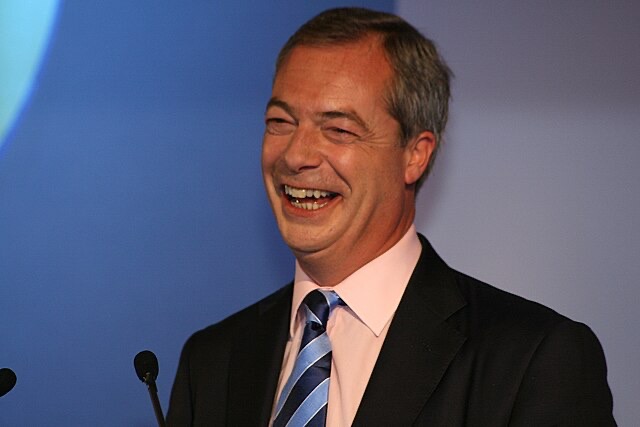Approximately 1.5 million teenagers will gain the right to vote at the next general election under sweeping reforms announced by Deputy Prime Minister Angela Rayner, prompting fierce accusations of “ballot box stuffing” from opposition parties.
The electoral overhaul, which marks the most significant change to voting rights in over half a century, will allow 16 and 17-year-olds to cast ballots for the first time in UK parliamentary elections from today onwards.
A Merlin Strategy poll of 500 teenagers revealed Labour would capture 33 per cent of the new youth vote, followed by Reform UK at 20 per cent, whilst the Conservatives trail dismally with just 10 per cent support.
Reform UK leader Nigel Farage issued a stark warning to Sir Keir Starmer’s government, declaring: “It’s an attempt to rig the political system but we intend to give them a nasty surprise.
A senior Conservative source condemned the move as “bare-faced ballot box stuffing”, adding: “It’s a sign of desperation this failing Labour government is resorting to underhand tactics and rigging extra votes to try and cling on to power for longer.
The reforms come as Labour quietly abandoned controversial plans to extend voting rights to millions of EU nationals living in Britain, a proposal that had featured in Sir Keir Starmer’s 2020 leadership campaign and the party’s 2019 manifesto.
Pollster Scarlett Maguire, director of Merlin Strategy, acknowledged Labour’s lead amongst teenagers but noted potential vulnerabilities. I think maybe Labour would like to have a bigger lead among these people, but they still have quite a convincing lead over the challenging party, Reform UK,” she said.
Deputy Prime Minister Rayner defended the changes, stating: “For too long public trust in our democracy has been damaged and faith in our institutions has been allowed to decline. We are taking action to break down barriers to participation.”
The government cited the fact that 16-year-olds can work full-time, pay taxes and serve in the armed forces as justification for extending the franchise. Democracy Minister Rushanara Ali described it as “a generational step forward in restoring public trust and boosting engagement in UK democracy.”
However, the polling data suggests teenagers themselves are divided on the issue. The Merlin Strategy survey found that 49 per cent of 16 and 17-year-olds do not believe they should be allowed to vote, whilst only 51 per cent supported the change.
Conservative shadow communities secretary Kevin Hollinrake seized on these findings, telling the Daily Mail: “Even 16 and 17-year-olds don’t think they’re ready to vote. With only 18 per cent saying they’d definitely take part in an election, it’s clear that rushing to lower the voting age risks undermining the democratic process.”
The reforms represent the first change to the voting age since 1969, when Harold Wilson’s Labour government reduced it from 21 to 18. Scotland and Wales already permit 16 and 17-year-olds to vote in devolved elections.
Green Party MP Ellie Chowns welcomed the announcement but urged Labour to implement further democratic reforms. “Giving 16 and 17-year-olds the vote is a long-overdue step towards a stronger, more inclusive democracy,” she said. “But if Labour are serious about renewing our democracy, this must be just the beginning.”
The electoral changes form part of a broader package including the creation of a digital Voter Authority Certificate and expanded acceptable voter ID to include bank cards, reversing Conservative requirements for photo identification at polling stations.
Labour’s decision to drop EU voting rights marks a significant retreat from earlier promises. In 2020, Starmer had written: “The government should give all 3 million EU nationals living in the UK full voting rights in future elections.
Since Brexit, EU citizens who arrived after December 2020 no longer have automatic voting rights in local elections, with such rights restricted to nationals of countries with bilateral agreements—currently Denmark, Poland, Spain, Portugal and Luxembourg.
The youth voting data reveals interesting demographic patterns. Eighteen per cent of surveyed teenagers would vote Green, 12 per cent Liberal Democrat, suggesting significant fragmentation amongst younger voters traditionally expected to support progressive parties.
GB News understands that whilst teenagers will gain voting rights, they will not be permitted to stand as candidates in either local or parliamentary elections, maintaining a distinction between voting and candidacy eligibility.
The reforms will require parliamentary approval through the forthcoming Elections Bill. Research from countries that have lowered the voting age to 16, including Austria and Brazil, shows no significant impact on election outcomes but indicates 16-year-olds are more likely to vote than those first eligible at 18.
As Labour faces declining membership—down to 309,000 in February 2025 from over 560,000 in 2017—the party appears to be banking on younger voters to shore up its electoral coalition ahead of growing challenges from Reform UK.
Follow for more updates on Britannia Daily
Image Credit:
Nigel Farage (2015) – Image by Gage Skidmore, licensed under CC BY-SA 2.0, via Wikimedia Commons.
View Image



